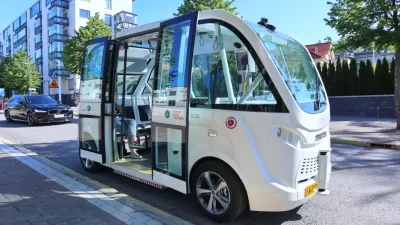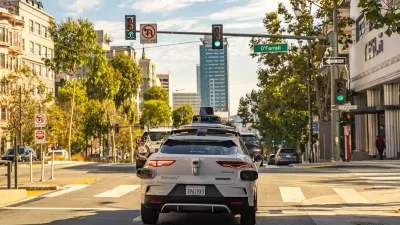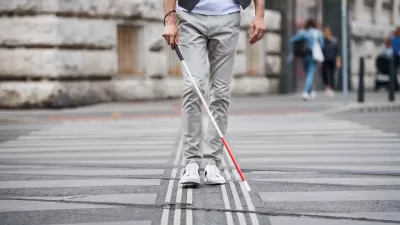With self-driving vehicles allowed on public streets in 20 states, federal regulators are beginning to scrutinize the industry for safety concerns.

The National Highway Traffic Safety Administration (NHTSA) is investigating self-driving taxis from General Motors subsidiary Cruise, which have been involved in multiple incidents that resulted in unsafe conditions. As Dan Zukowski explains in Smart Cities Dive, “These events, NHTSA said, could lead to dangerous situations for passengers such as their having to exit the vehicle in traffic or leave a vehicle stranded in an intersection.”
According to Zukowski, “NHTSA last year ordered manufacturers and operators to report crashes involving vehicles equipped with automated driving systems; it is also investigating 830,000 Tesla cars equipped with the Autopilot driver assistance system.” Between July 2021 and May 2022, AVs were involved in 130 crashes. Today, 20 states allow the testing or deployment of automated vehicles without a human driver present. “While federal regulations limit the number of fully automated vehicles an operator can deploy, there are no federal safety regulations specific to autonomous vehicle operational standards.”
Volkswagen and Ford recently pulled support from their autonomous vehicle investments. As Ford CEO Jim Farley explained in October, “profitable, fully autonomous vehicles at scale are a long way off.”
FULL STORY: Federal safety regulators begin investigation into self-driving taxis

Study: Maui’s Plan to Convert Vacation Rentals to Long-Term Housing Could Cause Nearly $1 Billion Economic Loss
The plan would reduce visitor accommodation by 25,% resulting in 1,900 jobs lost.

North Texas Transit Leaders Tout Benefits of TOD for Growing Region
At a summit focused on transit-oriented development, policymakers discussed how North Texas’ expanded light rail system can serve as a tool for economic growth.

Why Should We Subsidize Public Transportation?
Many public transit agencies face financial stress due to rising costs, declining fare revenue, and declining subsidies. Transit advocates must provide a strong business case for increasing public transit funding.

How to Make US Trains Faster
Changes to boarding platforms and a switch to electric trains could improve U.S. passenger rail service without the added cost of high-speed rail.

Columbia’s Revitalized ‘Loop’ Is a Hub for Local Entrepreneurs
A focus on small businesses is helping a commercial corridor in Columbia, Missouri thrive.

Invasive Insect Threatens Minnesota’s Ash Forests
The Emerald Ash Borer is a rapidly spreading invasive pest threatening Minnesota’s ash trees, and homeowners are encouraged to plant diverse replacement species, avoid moving ash firewood, and monitor for signs of infestation.
Urban Design for Planners 1: Software Tools
This six-course series explores essential urban design concepts using open source software and equips planners with the tools they need to participate fully in the urban design process.
Planning for Universal Design
Learn the tools for implementing Universal Design in planning regulations.
Ascent Environmental
Borough of Carlisle
Institute for Housing and Urban Development Studies (IHS)
City of Grandview
Harvard GSD Executive Education
Toledo-Lucas County Plan Commissions
Salt Lake City
NYU Wagner Graduate School of Public Service





























